FOOTBALL
Big Ten Media Days: Full podium Q&A from Indiana football head coach Curt Cignetti
Indiana football head coach Curt Cignetti spoke to reporters during his press conference at Big Ten Media Days.
Published
1 year agoon
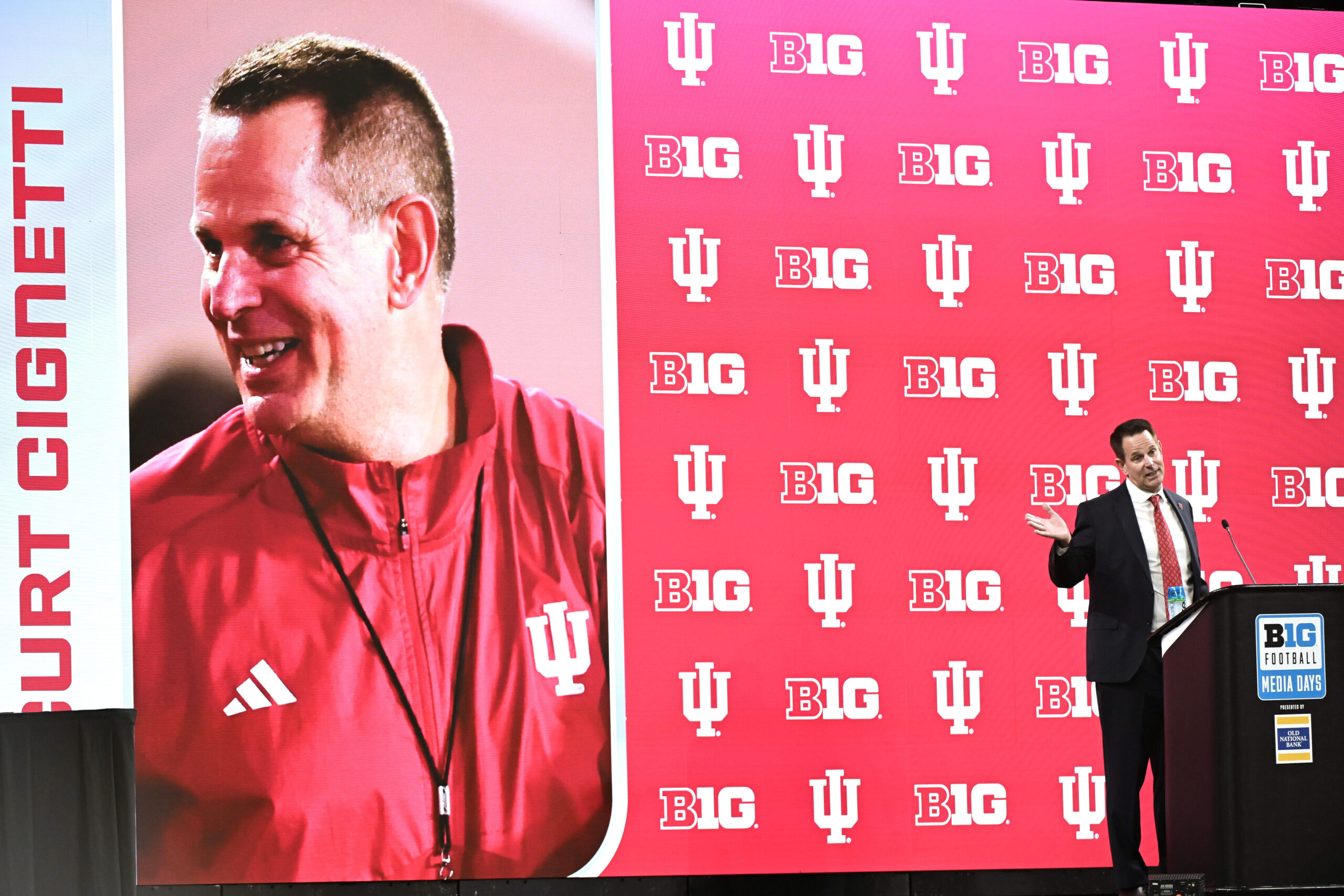
Indiana football head coach Curt Cignetti took to the podium on Thursday afternoon to wrap up day three of Big Ten Media Days.
Cignetti spoke to reporters and discussed the change in culture, quarterback Kurtis Rourke, expectations for this Indiana football team, and much more
Below is the full video Q&A and transcript from Indiana football head coach Curt Cignetti.
THE MODERATOR: Curt Cignetti arrives at Indiana after a five-year run at James Madison that saw the Dukes go 52-9 in that span.
Coach Cignetti, welcome to the Big Ten Conference. We’ll begin with your opening statement.
CURT CIGNETTI: Thank you. Good to be here. After 42 years of coaching, it’s always good to be on the roster. Stay on the roster, that’s the key to the drill.
Had a great summer. I want to thank my wife Manette for allowing me to do what I love to do. Without her, this wouldn’t be possible. We’re a team.
I would also like to thank Pam Whitten and Scott Dolson for their tremendous commitment to making IU football relevant. And Tony Petitti, who I’ve gotten to know, for his leadership, vision, intelligence, and willingness to make tough decisions.
The Big Ten Conference is a great preeminent league, has been for a long time, and the addition of four West Coast teams puts us on an exciting new trajectory. I’ve got a lot of respect for every school and coach in this league, and we’re excited to get going.
Now, I can tell you, normally at these things I stand up here and we’re picked to win the league. It’s just usually how it’s been. I have been picked next to last twice, which we’re picked 17th out of an 18-team league, and I get it. The two times we were picked next to last, in 2022, we won the conference championship, and in 2017 we inherited an 8-45 team and won eight in a row and played JMU the last game of the year for the conference championship.
Now, I’m not into making predictions, that’s just a historical fact. I know you guys have been waiting for me to say something crazy. That wasn’t quite crazy.
I think the other point I’d like to make — it was just three seasons ago that Indiana was a touchdown away from winning the Big Ten Conference, three seasons ago. Now,
in this day and age, the Internet society, I’ve got to have it now, three seasons ago seems like three decades ago, and all of a sudden Indiana’s become like an impossible job or they’re irrelevant.
What I can tell you is in this business the margin for error is very slim, and even Indiana last season lost five one-score games, and I’m including Penn State, which was tied with 2:30 to go. Now, our stable, places I’ve coached, the guy I learned from, we’re pretty darn good at those one-score games. So just saying.
I like our team. We have a lot of experience on our team. We have a lot of guys that have played winning football that have good career production numbers multiple years, and we’ve got a good core group of guys that are accustomed to winning and are used to winning.
Now, you probably wonder how you say that inheriting a program like this, but in this day and age in the portal, you can change things real fast. How did we get to this point, and what’s the transition been like?
Day one on the job, December 1st — this was a three-day hiring process. This happened really fast. Day one on the job, I’ve got ten offensive starters in the transfer portal and half my defense. Now, I didn’t know that. They didn’t tell me that. I wouldn’t have told me either. Good move there, Scott.
I hadn’t even hired — you’re hiring a staff, you’re doing all the things a new coach has got to do. Three weeks later, we’ve got 22 new guys on our team, multiple All-Conference players, two three-year starters, high character guys. We’ve completely flipped the roster.
January, you get into your winter conditioning, spring ball. Now, I’ve been blessed with great staff continuity. The people that are in positions of responsibility. My defensive coordinator’s been with me ten years, Bryant Haines, not always as a coordinator. My offensive coordinator, Mike Shanahan, nine years. My strength and conditioning coordinator, Derek Owings, going on year five or six. So they understand the blueprint, the process, what I expect, the standard, the expectation, the accountability.
When you have that kind of continuity and the right kind of people in your program, student-athletes, that makes for a smoother transition. So I think we definitely made very significant progress as a program.
Get into spring ball, put your offense, defense, special teams in, what you expect, your practice standards. By practice five, it felt like a normal practice, and we continued to make improvement.
Then we entered the spring portal period, we added six defensive players in positions of need, another offensive player, and we’ve had a really good summer.
I like our team. I have confidence in our team. But we’re not where we need to be today, no. The fortunate thing about that is nobody’s where they need to be today because you have so many new players and so many things on the table in terms of August practice that you got to improve on in terms of consistency and performance, intangibles, player development, scheme development, so on and so forth.
When I say I feel like we’ve made a lot of progress, I understand we’ve got to put it on the field. We’ve got to put it on the field. But nothing gets people excited like winning.
You string together a couple of wins, all of a sudden, you’re on national TV every week. You can’t get in that stadium. You become the talk of the country.
One of the reasons I came to Indiana is I felt like I had done this a couple times already, not on this level, but like you go to Elon and they’re 8-45 and they’re 2-10 the year before, picked next to last. The team that was picked last actually beat them like 48-10 the last game of the year at Elon. You put together eight wins in a row, and every one of those games went down to the last play. You’re winning all those close games, and all of a sudden people who won’t come to the stadium, now they can’t get in the stadium.
We’ve got a lot of guys accustomed to getting the result. We’re very process oriented in terms of what we do: Control the controllables, humble and hungry, be where your feet are, no self-imposed limitations, improve every minute, every hour, every day, every rep, one play at a time. Buy into that, okay, and just improve and see where the process takes you.
Now, I’ve kind of had to speak a big game taking over a job like this because we had to wake some people up and create some excitement, and after all, this is the entertainment business too.
Excited to be here. We have eight home games. We have a great schedule. Can’t wait to get going.
With that, I’ll open it up for questions.
Q. You talk about recruiting and getting people that are a fit. In regards to just NIL and maybe like the local community, how have they supported you in your pursuit, and how have the players kind of reached back out in that regard too?
CURT CIGNETTI: I think that’s been a real key component, things that are critical to a program’s success. I think the university’s anted up. It’s very important to them that we get football going, and there shouldn’t be any limitations on what we can accomplish in football.
Somebody asked me, how do you define success at Indiana? I was like, well, we want to be the best. I mean, you don’t bring your kids up, Johnny, I want you to be fourth best. I want you to be tenth best. Bullshit. We want to be the best. So when I talk about no self-imposed limitations, that’s what I’m talking about.
Now, specifically to your question, that number’s gone up and allowed us to be very competitive and recruit good football players, and there’s going to be further changes down the road that I think will benefit us also. That’s why — just one of many reasons I’m so optimistic about our future.
Q. Wondering about your father and what you learned from him at an early age. First of all, what was the most important thing you learned from your dad in terms of either as a man? And then coaching-wise, what’s the first thing you learned from him?
CURT CIGNETTI: Greatest man I’ve ever known, blessed to be able to call him my father. Was a very direct man, very honest man, had a great work ethic, led by example, helped a lot of people and players in their lives, had a good heart. Overcame cancer his third year as head coach at West Virginia, given his last rights twice, beat that, had to get out of football and went back to his alma mater a few years later and had an outstanding career.
Never coached for him. Never played — I played one year, my freshman year at West Virginia, for him. He was always my biggest critic early on, and my coaching career, did not tell him that I was going to take the IUP job because I knew what he was going to say. I called him the night before and said I’m going to be announced tomorrow.
I was 50. I bet on myself. I was tired of being a head coach. I took a big pay cut, and it worked out, I’m here today.
The field was named after him. I threw him off the field one year because he was being too critical, you know what I’m saying? But very complimentary of the way we played at the end when I was at JMU. I learned a lot in personal things from him, yeah.
Q. What ultimately landed you on Kurtis Rourke, and what do you need to see from him to get the best out of him?
CURT CIGNETTI: I’ve always made the quarterback decision when it comes to the portal. Our last four quarterbacks have all been Player of the Year in the league, and they were all different, and they all had their skeptics. We’ve done a great job of developing our quarterbacks.
I felt like he was the best out there for us. He had started a lot of games. He was Player of the Year in the conference in 2022. He won a lot of games, engineered a lot of two-minute drives, done a lot of touchdown passes.
Gotten them back to second and ten when put in a bad situation.
I thought he had a really good spring, a great summer. I sleep better at night knowing I’ve got a guy like that that’s played that many games.
FastScripts by ASAP Sports
SEE ALSO: Indiana football details multiple new gameday changes, enhancements to Memorial Stadium
Make sure to follow Hoosier Illustrated, part of the Full Ride Network, on Twitter @Indiana_FRN, Facebook and YouTube to stay up to date on all of the news, updates and coverage of Indiana University athletics. You can also listen to the Talking’ Bout the Hoosiers podcast on Spotify.
Looking for a place to get more Indiana content? Hoosier Illustrated has partnered with Tom Brady’s company ‘Autograph’ to streamline our coverage, so you can continue to do what you do best – follow IU sports. Use the CODE: Indianafr to get started today. For more info, you can start here.
Kyler Staley is a Basketball Recruiting Analyst for Hoosier Illustrated, a comprehensive site covering news, updates and recruiting for Indiana University athletics. Kyler has been in the basketball recruiting industry since 2019 and is a credentialed media member. He has covered Indiana since 2021 while continuing to also work for Prep Hoops Indiana. He has previously worked for Rivals.

You may like
-
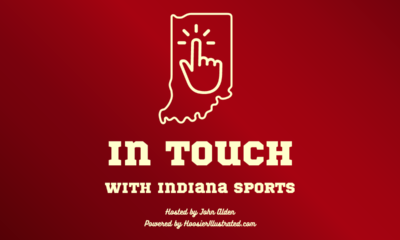

In Touch with Indiana Sports Ep.101 — Indiana basketball transfer portal targets, Fernando Mendoza fitting in with IU football, the 2025 Final Four is set, and more
-


‘I hope to be a point guard’: Fernando Mendoza discusses first spring practice with IU football
-


In Touch with Indiana Sports Ep.100 — Indiana basketball & the transfer portal, Hoosiers eligible for offseason foreign trip, IU football’s projected win total, and more
-
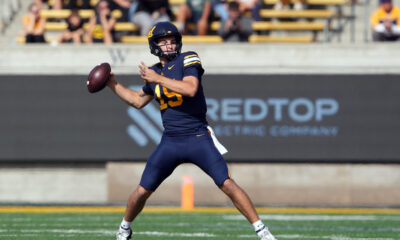

Fernando Mendoza is eyeing a ‘mastery level’ of the Indiana football offense. So far in spring practice his work ethic and preparation have him well on his way to doing so
-
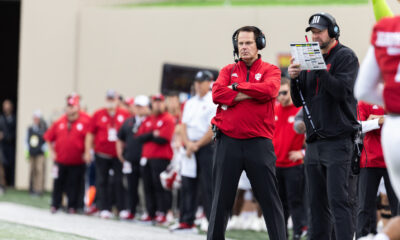

CBS Sports projects win total for Indiana football ahead of 2025 season
-
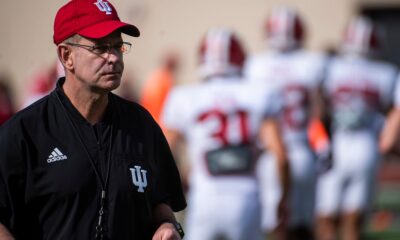

‘Huge for them in terms of their development’: Significant number of Indiana football early enrollees off to a head start on their collegiate careers
